Fresh off his wildly successful debut opposite Chaplin in The Kid, Jack Coogan starred in an adaptation of the popular Peck’s Bad Boy stories, which concerns the antics of a child who can charitably be described as the devil’s spawn. If this film proves one thing, it’s that our definition of a “bad boy” has changed enormously since 1921.
I will also be reviewing the 1934 remake starring Jackie Cooper and Thomas Meighan. Click here for the talkie.
This post is part of the They Remade What?! Blogathon. Read the other great posts here.
Have they considered military school?
Before going into this, I should probably mention that I am not a big fan of the “Whoopsy! Am I in trouble again?” genre of literature that was so popular in the nineteenth and early twentieth centuries. You know, precocious and overly imaginative kids with too much time on their hands who end up getting adorably into trouble. I think Anne of Green Gables is a dolt and never found Tom Sawyer to be particularly appealing.
However, I am a big fan of Jackie Coogan. Coogan burst on the scene when he was selected to play Charlie Chaplin’s adopted son in The Kid. He delivered an incredibly sensitive performance, especially considering that the film was released when Coogan had just turned six.

Hollywood has always been about striking while the iron is hot and so Coogan was immediately cast as Peck’s Bad Boy. The film came out just a few months after The Kid and proved to be a handsome success. Any concerns that Coogan would wilt without Chaplin evaporated and he went on to be one of the most successful child stars of the silent era. (And subsequently Uncle Fester but that’s a different story.)
Peck’s Bad Boy was based on a series of stories by George Wilbur Peck, who penned yarns of a naughty little boy in the late 19th century. The stories had a strong streak of cruelty running through them but this didn’t prevent the author from becoming a beloved bestseller and even being elected governor of Wisconsin in 1891.

The story opens with our tiny hero, his friend and his dog (named, ugh, Tar Baby) being chased by a lion. The boys and dog take refuge in one of the animal cages while the circus workers run around in a panic trying to recapture the beast. It seems that the tykes decided it would be a swell idea to open the lion cage. (And, apparently, everyone also thought it was a swell idea to lock children and a dog in a cage and let the lion fish through the bars with his paws. I would like to lodge a complaint!)
The children weren’t the only people endangered. According to cinematographer Osmond Borradaile, the lion’s trainer was on hand throughout the shoot and the lion was separated from the film crew by a wire enclosure. The film was shot on a shoestring and so every day of production counted. In order to make use of the fading light, Borradaile, cinematographer Al Gilks and director Sam Wood ventured inside the enclosure to get a better shot of the lion.
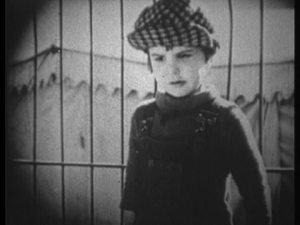
As Gilks and Borradaile would be occupied with their cameras, the trainer gave Sam Wood a spear with which to defend his crew in case the lion got frisky. As the action started, one of the lions did indeed charge for the crew but Wood was ready. He lifted the spear and then jammed the point into the ground and used it to vault himself to safety, leaving his camera crew to fend for themselves.
Borradaile does not mentioned any injuries from this incident but from that day forward, every time he or Gilks were to shoot a risky scene with Sam Wood, they would call for someone to hand their “protector” a spear.
(You can read more of Borradaile’s fascinating reminisces in Life Through a Lens: Memoirs of a Cinematographer. Apparently, Gloria Swanson was his all-around favorite to work with because she was both friendly and professional.)
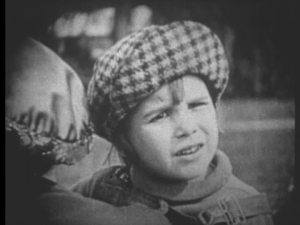
I shared that story because it’s hilarious and because it is far more entertaining than anything that will happen in Peck’s Bad Boy. I feel bad for inflicting this turkey on you and I hope this makes up for it somewhat.
The film definitely gets off to a weird star and after the lion incident you may be thinking that it was an accident. I mean, kids are curious, right? We soon realize, however, that there is something far more sinister afoot.
The weirdest thing about this film is how it seems to have no idea how despicable its protagonist is. To demonstrate this point, I will relate the incidents as they are presented in the film and then provide a translation. And please remember that this child is six.
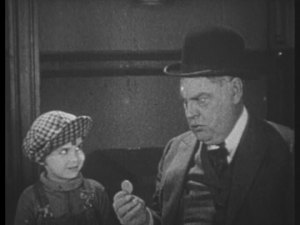
(Remember, this child is SIX)
Angered at the lion incident, Mr. Peck (James Corrigan) refuses to give his son money to attend the circus. Henry has his friend write a plaintive anonymous note to Mr. Peck, asking to meet at the candy shop. Then Henry has his friend dress in a frock, a wig and a hat. When Mr. Peck meets this “lady” Henry wanders in and acts surprised to see his father out with a woman other than his wife. To get rid of the kid and buy his silence, Mr. Peck gives him money for the circus. The scamp!
Translation: Henry and his friend frame his father for adultery by dressing a child in women’s clothing.

Henry likes to hang out in the local general store, where he sneaks large quantities of treats from the open bins. Pickles, prunes, bananas, apples, cider… He even lets his dog lick some of the fruit. Hilarious! But that mean storekeeper (Raymond Hatton) writes down everything Henry eats and charges his dad double or triple. Boo! Hiss!
Translation: Henry regularly shoplifts from a small business and lets his dog slobber on the goods. Rather than deal with disciplining someone else’s kid, the shopkeeper uses financial means to punish Mr. Peck for not controlling his brat.
Henry gets sick from all the food he ate. He doesn’t usually come home for dinner but he is so ill that he races home. His mother and sister decide he has been poisoned and call Mr. Peck who summons the doctor, the handsome newcomer to town, Dr. Jack Martin (Wheeler Oakman).
Translation: Henry is completely ignored and seems to have zero discipline from his doting/neglectful mother and older sister. Both women seem to be slightly delusional. (The kid has a tummy ache and their first thought is poison?)
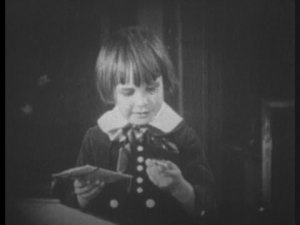
While dressing for church, Mr. Peck asks Henry to hand him his back brace and the boy secretly fills it with ants. He also wraps playing cards in his father’s pocket handkerchief in order to make him look like a gambler. In church, Mr. Peck starts itching and scratching and as he pulls out his hankie to wipe his brow, the playing cards go flying. He is forced to flee as the ant bites grow more and more numerous. Hilarious!
Translation: Henry is a serial killer in the making. Seriously, who does this? It’s not funny and it’s not cute. (This “joke” was in the original stories as well. Remember, the man who wrote these things was an elected governor. Good lord.)
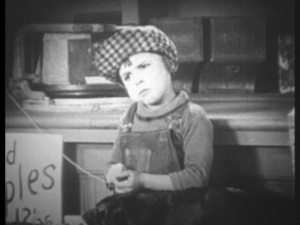
I could go on but I think the point is clear. I’m not even going to mention the time he tried to frame the doctor for industrial espionage, vandalized a business or stole a railway cart and nearly derailed a train. This child is evil. It’s like someone remade The Omen as a delightful family film without changing the script one iota. I have no doubt that Henry’s favorite lullaby is Ave Satani.
There are a few coarse pleas for sympathy. Henry buys an ice cream cone for a baby who had hers stolen and he rescues his dog from going to the pound. However, these moments are few and far between in a mean-spirited and unpleasant film. (By the way, the baby with the stolen ice cream was director Sam Wood’s daughter. She changed her name to K.T. Stevens and enjoyed a career in films, television and soaps for decades.)

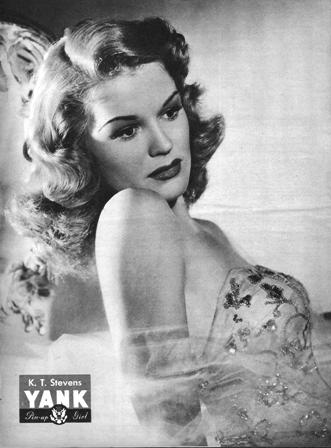
But back to the subject of Henry. Basically, Henry targets the one person willing to discipline him: his father. His cruelest jokes are aimed at poor Mr. Peck. “Do my bidding or pay the price.” My personal opinion is that little Henry Peck’s future involves changing his name to Jonathan Brewster and perfecting the Melbourne Method. The little rotter will come to no good end. Just don’t tell him he looks like Boris Karloff.
And to people who defend Henry Peck’s behavior as impishness, I can only say that the children you grew up with must have been terrifying.
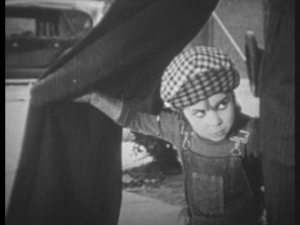
The thing is, silent movies knew exactly how to portray naughty but endearing children. Mary Pickford was an absolute pro at this, especially in Daddy Long Legs, Little Annie Rooney and Through the Back Door. The trick is to make their mischief internally logical to them. Pickford may have been an imp but her performances were charming because her characters made sense and they were basically good kids even if they threatened people with slingshots or slid down bannisters. The little animal in Peck’s Bad Boy is solely motivated by his driving desire to cause suffering to others. What a doll.
I hated this movie so much that it’s… I can’t even… It is horrendous in every way and I wish it had been lost. I would gladly toss my DVD onto a bonfire but I’m afraid of what would emerge. Avoid at all costs.
Movies Silently’s Score:★
Where can I see it?
Peck’s Bad Boy was released on VHS and there is a bargain disc release that is about the same quality. If you must see it, don’t spend too much money.
Producer Sol Lesser returned to the Peck’s Bad Boy property a dozen years later and cast another child star at the height of his popularity, Jackie Cooper. Cooper was three years away from his then-record Academy Award nomination and had been teamed with the raucous Wallace Beery at MGM. Mr. Peck was played by veteran leading man Thomas Meighan, who had once again come out of retirement.
Well, it would be difficult for this picture to be worse than the 1921 version so let’s get this show on the road.
The Talkie Challenger: Peck’s Bad Boy (1934)
Bill Peck (Jackie Cooper) is the only son of a widowed father (Thomas Meighan). They are a close pair and often go fishing, out to dinner and other father-son stuff. Bill’s world gets turned upside-down when his Aunt Lily (Dorothy Peterson) and cousin Horace come to stay. Horace is played by Jackie Searl, which leads me to wonder if every child in the 1920s-1930s was named Jackie.

Bill is excited to have a boy his own age to play with but it soon becomes clear that Lily and Horace have no use for him. Worse, they seem determined to push him out of the family. This isn’t a paranoid fantasy on Bill’s part. Lily drives away all the old servants and workers and even tries to kick Bill out of his own bedroom so that Horace can have it. Horace, for his part, informs Bill that he was adopted and so he doesn’t really have a right to be in the house anyway.
And where is Mr. Peck during all this? Oh, just hanging around yelling at Bill for not being nicer to Horace. Nice dad you have there, kid. So how will Bill deal with these bullies when even his father is against him? That’s the central conflict, folks.
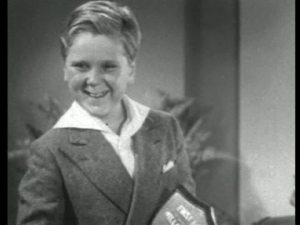
It’s clear that Lesser learned something from the mistakes of the first film. While the 1921 version of Peck’s Bad Boy has the son deliberately fill his father’s back brace with ants, the 1934 remake has Bill drop ants in Horace’s Sunday suit in retaliation for some nastiness. Horace spots the ants and decides to do one better by pouring them into Mr. Peck’s suit. Bill gets the blame and Horace’s behavior is portrayed as perfectly rotten. Well, that’s an improvement anyway.
Bill is generally a much nicer kid than Henry of 1921 and any bad behavior is something that he is driven to. However, I really did miss Jackie Coogan in the role. The problem with Cooper’s performance is that he does that maddening 1930s child actor thing of talking while making a duckface. You know, lips out so that the words produced sound more babyish. This gets steadily more grating the older the child is and Cooper was eleven going on twelve. Nails on a chalkboard would have been more pleasant. (I don’t blame Cooper, he was a child and had to do as he was told, but I am rather irritated with director Edward F. Cline for allowing this.)
In general, American child actors of the 1930s act like they are from some weird parallel dimension that is all affectation and weird mannerisms. They are almost without exception over-rehearsed and annoying as heck. Silent films had better kids. There, I said it.

Class project: Stick out your lips and say “Golly gee, Mr. Policeman, I thought it was swell when I knocked over that liquor store. You don’t want to be an old meanie, do you?” in a high, squeaky voice. Then see how many people find you cute. (Spoiler: No one will find you cute.)
(The 1930s baby talk is only my second least favorite child actor affectation. My all-time least favorite would have to be that awful fad in the 1980s when they thought having small children swear and talk about sex in detail was cute.)
Another problem with the ’34 film is that the stakes are insultingly low. Basically, the entire story hinges on Mr. Peck being a dope. If he were to wise up for even a second all the problems would evaporate. The 1921 film was pretty light on plot. It was a collection of unrelated “comedy” sketches, really. The 1934 film is even more devoid of story and what it has is stretched paper thin. Basically, there is just enough narrative for a 20 minute short.
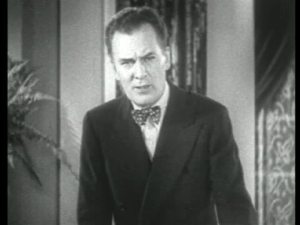
Really, the single biggest problem with Peck’s Bad Boy is the character of Mr. Peck and not just because he is oblivious. I love Thomas Meighan and he gives a good performance (his final one before his death) but his character is a terrible parent. For example, near the start of the film, Peck and son are at a father-son dinner. Mr. Peck stands up to praise his son (good), says that he’s a bit mischievous but nice (good), and then states that if a boy doesn’t break a few windows, he may as well wear lace pants. Huh?
So let me get this straight. In order for a boy to be considered a “real boy” he has to engage in vandalism? What the heck? Children are all different. Some boys like traditional boy things (sports, roughhousing, etc.) while others prefer quieter activities. And that’s fine. The idea that a boy has to prove his manliness through violence when he is not yet old enough to shave is disturbing to say the least.
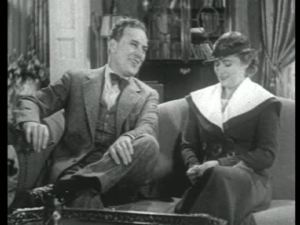
Worse, Bill’s behavior does not support his father’s bizarre pronouncements. He’s a sweet kid who plays well with others, is kind to animals and generally is the sort of child you don’t mind having around the place. He never once breaks a window or does anything that could be considered major misbehavior. His fights with Horace are all the result of terrible provocation and he gets punished for those. Where the heck does Daddy Peck get this nonsense?
Once Horace is ensconced, Mr. Peck begins to notice that he gets better grades than Bill. Over the dinner table, he openly compares the two boys and wants Bill to be more like Horace. Alert! Alert! Terrible parenting! Then Lily and Horace leave the table and Mr. Peck apologizes for what he did. Um, you insulted your son in front of people, shouldn’t you be just as public in your apology? Sheesh!
Mr. Peck fails to notice that his son is miserable, that Lily is driving away the whole staff and that Horace is engaged in psychological warfare. Peck claims that he wants his son to be a window-smashing masculine he-boy but then lays into him for not acting like his more refined (at least on the surface) cousin. Make up your mind, sir!
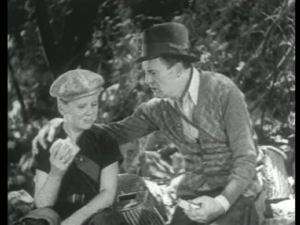
This is a good place to point out that Mr. Peck’s given name is Henry. Are they trying to say that he is the original Peck’s bad boy all grown up? Come to think of it, it makes sense. It would certainly explain his bizarre attitude toward vandalism and his utter lack of empathy. And isn’t he widowed? Hmm, I suppose his wife probably met with an “accident” hmm? You know, the movie never does say what he does for a living, though he seems to live very well. Maybe he goes around arranging other “accidents” if the price is right. It comes as no surprise that Bill was adopted; he is the only person in the house who isn’t a raging sociopath.

Wow, I think I accidentally made the movie more interesting! But now we have to reach a verdict. Which film is better? Do we go with Peck’s Spawn of Satan or Peck’s Bad Dad?
And the winner is…
the Talkie
The plot is boring and Mr. Peck needed a slap upside the head but the talkie is simply less offensive than the silent. It’s not a great film or even a good one but at least the child in question is not a demon. Neither film is going to win any prizes in my book and I will probably never watch either one again but the sound film was overall less infuriating.
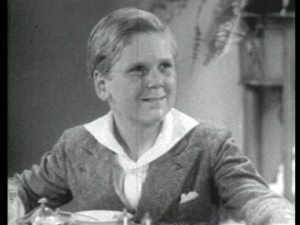
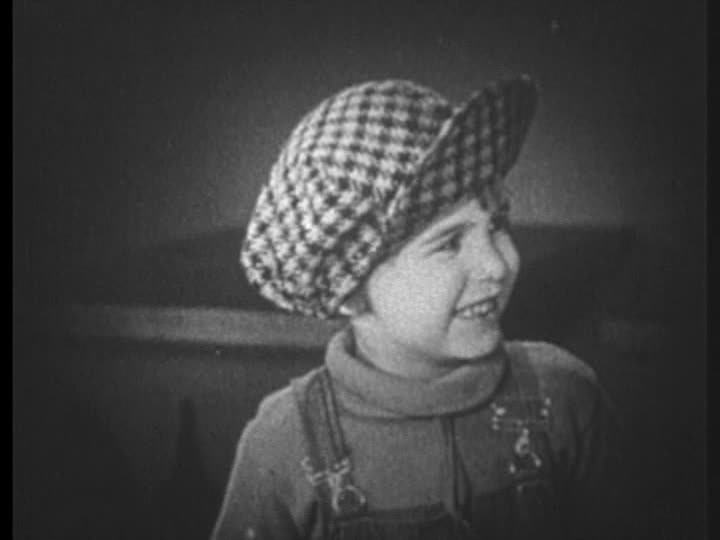

Oh God, both sound awful. I’m so sorry you subjected yourself to that!
Yeah, I’m sorry too. 😉
I honestly had no idea how bad they would be going in. I mean, Jackie Coogan and Thomas Meighan and the films are still bad? Whodathunkit.
Henry (1921) could very well be the Joker. That character debuted in 1940. Henry here would have been 25 at that time. The Joker character tends to have a vague origin story anyway, so that Henry might be the Joker is entirely possible.
Another great theory! I wonder who have him the Glasgow smile? Since we’re in crossover territory, I’m going to say that he had a run-in with Tony Camonte (Scarface) and misjudged how far he could take a joke.
Most entertaining reviews! I loved the part about the mannerisms of the ’30’s child actors (and yes, I despised that awful fad in the ’80’s, too). I’ve made up my mind never to watch either film. Thanks for suffering so I don’t have to! 🙂
If I can save one viewer from Peck’s Bad Boy, it has all been worth it. 😉
I watched the silent version once simply to see K.T. Stevens as a baby. Okay, it was a slow day. After your entertaining reflections on both films I shall avoid the talkie despite my fondness for Mr. Meighan.
Yes, I had high hopes for his final performance, a shame that the role let him down.
When my husband’s maternal grandparents downsized, had an auction, they made a list of all their books and let the grandkids pick which books they wanted. My husband let me help him make some picks, and we unknowingly picked Peck’s Bad Boy!!! Have not read it yet, and on the flyleaf, my husband’s great-grandmother(a librarian!) had gotten the book as a gift from her 3 sons(one being my husband’s grandpa) to their grandfather!!! The pages are quite brown, although the hardbound covers aren’t in too bad of a shape. Maybe I’ll try to read it…
How cool!
I laughed out loud at your summary of 1930s American child actors. These films both sound like they should be avoided, but your review was priceless. Fabulous stuff.
Also, as a side note, thanks for the recommendation “Memoirs of a Cinematographer”. Sounds fascinating…and I’m glad to hear he had nice things to say about Gloria Swanson. 🙂
Glad you enjoyed! Yeah, I feel bad complaining about the kids because it really wasn’t their fault. It was those darn grownups and their weird ideas of cute. 😉
Child actors – you either love ’em or hate ’em. I had never heard of these films before but it appears I haven’t missed much haha.
Thanks for participating!
Thanks for hosting!
I really like child actors when they are allowed to act like real children and not weird little dolls. Alas, both these films fell down on the job.